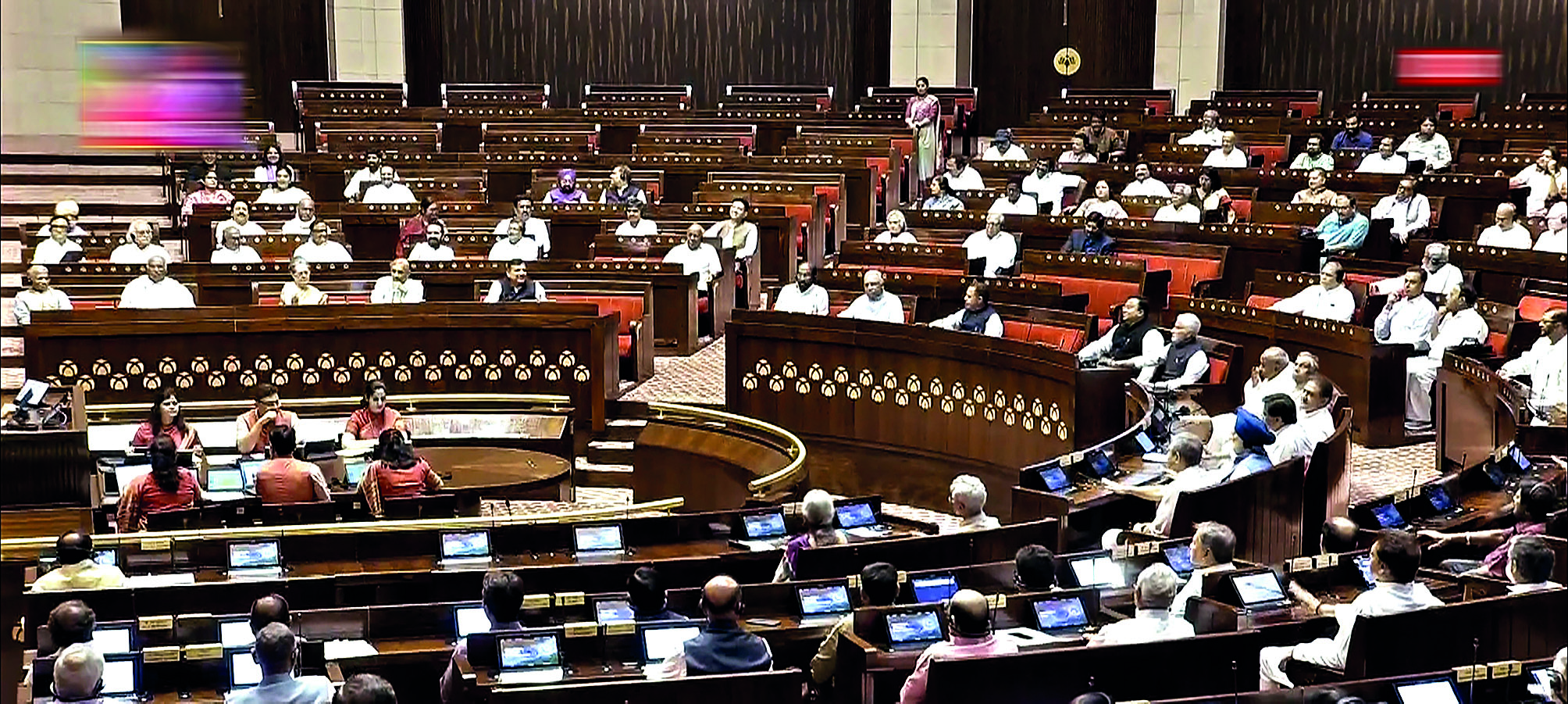TMC MP accuses Centre of financial bias against West Bengal

New Delhi: On Monday, the Trinamool Congress launched a critique of the President’s address in the Rajya Sabha. TMC Upper House member Jawhar Sircar raised major points regarding the economic blockade imposed by the central government on West Bengal, which has become a hot topic of debate.
Allegations have surfaced that the Centre has withheld Rs. 1.72 lakh crores, encompassing funds for NREGA, Awaas Yojana, Sadak Yojana, and Health Centres.
A stipulation to rename Health Centres as ‘Arogya Mandirs’ and paint them saffron has also sparked controversy.
Sircar argued that this financial blockade is a punitive measure against West Bengal, a state where the ruling Bharatiya Janata Party (BJP) has consistently faced electoral defeats.
The residents of West Bengal, it seems, have firmly rejected BJP’s policies of communalism, casteism, and repression of women.
This resistance is highlighted by the Trinamool Congress (TMC) sending 38 per cent of women MPs to the Lok Sabha and Rajya Sabha, a record unmatched by any other party.
While the President recently spoke of good governance, Sircar also pointed out that the World Bank’s Governance Index places India at 66th, trailing behind many developed and developing nations. The Prime Minister’s ambitious promise of a $5 trillion GDP by 2024 remains unfulfilled, with the current GDP not even reaching $4 trillion.
Critics argue that India’s fifth-largest GDP status disproportionately benefits the wealthy elite, dubbing it the “AAJA GDP” (Ambani, Adani, Jindal, Agarwal) while the common man remains marginalised.
The country’s per capita GDP rank stands at a dismal 120th globally, only above nations with devastated economies.
The Upper House member also raised concerns about the government’s plan to celebrate 75 years of the Indian Constitution, given the Rashtriya Swayamsevak Sangh’s (RSS) historical opposition to it. References to Sardar Patel’s ban on the RSS from February 1948 to August 1949 for communal hatred and the subsequent jailing of its leaders add another layer of irony.
Critics highlight the paradox of erecting the world’s tallest statue for a man who once imprisoned RSS leaders.
He also labelled July 1 as a “Black Day” due to the implementation of three new criminal laws, which were passed amidst the suspension of 146 MPs.
These laws grant police extensive powers to arrest without a warrant, detain for 90 days, and curb political fasts and Assemblies.
A provision for penalising hate speech raises questions about whether it will be applied to divisive statements made by political leaders.
In terms of financial mismanagement and corporate handouts, the discourse on bank profits is overshadowed by the government writing off Rs. 15.5 lakh crores to cover frauds and industrial losses. Noteworthy is the sale of loss-making Videocon to Vedanta’s Agarwal at a fraction of its worth.
The government’s handling of telecom laws and the new Data Protection Act, which critics claim are designed to stifle dissent, further fuels controversy.
Sircar further claimed that the Performance Linked Incentive (PLI) scheme has been scrutinised, with allegations that the government is paying Micron Technology Rs. 3.2 crores per job created in Gujarat, a move critics label a scam. Despite massive infrastructure spending, infrastructure failures persist, with recent incidents of roofs collapsing and examination papers leaking during rains.
Meanwhile, the Centre’s policies and economic strategies have sparked widespread criticism and debate.
As these issues unfold, the political landscape in India continues to be shaped by these contentious decisions and their far-reaching impacts.



